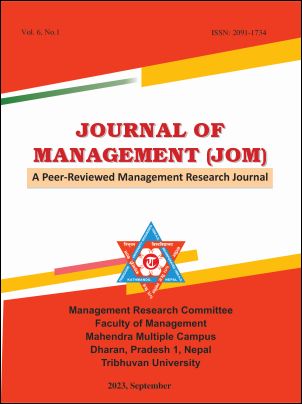Tourist Satisfaction in the Homestay of Nepal: Case Study of Namje Community Homestay
DOI:
https://doi.org/10.3126/jom.v6i1.58879Keywords:
Homestay, service quality, holserv, customer satisfaction, repurchase intentionAbstract
Purpose: This paper aims to examine the impact of service quality towards tourist satisfaction and analyses the impact of tourist satisfaction on re-visit intention. This article focuses on the area of Namje, Dhankuta.
Methods: It is based on descriptive and exploratory research design following the methods of qualitative and quantitative techniques. To build a reach understanding of the phenomenon, different theories, and data collection procedures: preliminary interviews, structural interviews, Google surveys etc. have been used.
Originality: This study is based on the SERVQUAL theory through which HOLSERV was developed for the proper evaluation of the tangibles, reliability and employees of the homestay.
Findings: The results obtained through the data collection from 384 respondents shows that Tangibles, Reliability and Employees are a significantly strong predictor of Customer satisfaction. Customer Satisfaction is also a strong predictor of Repurchase Intention. The main conclusion drawn from this study is that Tangibles, Reliability and Employees in a homestay lead toward customer satisfaction and customer satisfaction result the repurchase intention. This article recommends that the homestay should focus on accurate service time as promised and should satisfy their employees for better service.
Downloads
Downloads
Published
How to Cite
Issue
Section
License
© Management, Research Department, Faculty of Management, Mahendra Multiple Campus, Dharan, Nepal

